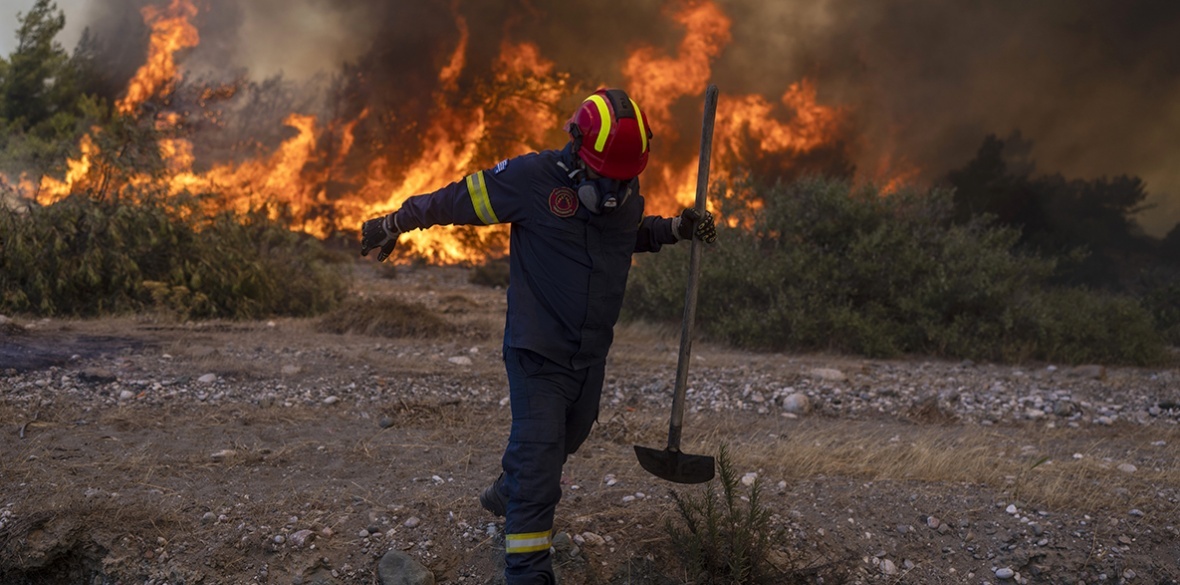This is the last article you can read this month
You can read more article this month
You can read more articles this month
Sorry your limit is up for this month
Reset on:
Please help support the Morning Star by subscribing here
EUROPE suffered a huge number of climate extremes as the continent was hit by heatwaves, wildfires, droughts and flooding last year, with scientists warning that disasters are set to get more frequent and intense.
Extreme weather affected human health and caused billions of pounds in economic losses, experts from the EU’s Copernicus climate change service (C3S) and the UN’s world meteorological service (WMO) said as they launched a report on Europe’s climate in 2023.
The report details the impacts of global warming, including a “beyond extreme” marine heatwave off British and Irish coasts, the continent’s largest-ever wildfire and exceptional glacier melt.
Heat-related deaths are on the rise in Europe, while 63 lives were lost to storms, 44 to floods and 44 to wildfires in 2023, and weather and climate-related, economic losses were an estimated €13.4 billion (£11.5bn), the report said.
WMO secretary-general Celeste Saulo said: “The climate crisis is the biggest challenge of our generation.
“The cost of climate action may seem high, but the cost of inaction is much higher.”
The scientists warned that heat-related deaths have increased by about 30 per cent in the past 20 years, and Europe in 2023 experienced a record number of days with “extreme heat stress.”
Heat affected the oceans too, with the average surface temperature for Europe’s seas the highest on record, the report said.
Wildfires burned an area the size of London, Paris and Berlin combined, with Europe’s largest-ever fire in Greece covering 370 square miles, alongside periods of drought in the Iberian peninsula and eastern Europe.
There was a below-average number of days with snow, the report said, combined with summer heatwaves, this meant the Alps saw “exceptional glacier loss” in 2023.
Over the past two years, Alpine glaciers have lost about 10 per cent of their remaining volume, the report found.
C3S deputy director, Samantha Burgess, said: “We know that extreme events are likely to become more frequent and more intense due to climate change.
“And we also know that all of these events are within a context of record concentrations of greenhouse gases in our atmosphere, which are the ultimate driver of human-caused climate change.”












